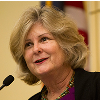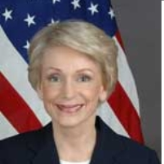The Bureau of Consular Affairs (CA) is in charge of issuing passports for American citizens intending to reside, conduct business, study, or travel abroad. It also provides alerts and warnings concerning potentially dangerous conditions in foreign countries, and assists U.S. citizens abroad on a variety of issues, including helping those who want to vote by absentee ballot when they’re out of the country, those who are involved in international adoptions, or those who fall victim to crime, accident or illness. In addition, the Bureau of Consular Affairs provides services to citizens of other countries seeking visas to visit or reside legally in the United States, and conducts research to determine who qualifies for a visa, and which applicants may be attempting to get into the country to engage in harmful activities. A bureau of the U.S. Department of State, the Bureau of Consular Affairs also serves as a liaison between the Department and overseas Embassies and Consulates on visa matters.
The Immigration and Nationality Act (INA) of 1952, in which the basic United States laws governing immigration and naturalization are contained, created the Bureau of Security and Consular Affairs within the Department of State, INA gave responsibility for the administration and enforcement of immigration law to the Secretary of State, as it relates to the duties and functions of diplomatic and consular officers, with the Bureau of Security and Consular Affairs becoming the branch of the Department of State to manage the issuance of passports to citizens, and visas to immigrants seeking permanent residence, and non-immigrants seeking authorization for a temporary stay in the U.S. From March 1 to December 30, 1954, the Bureau was called Inspection, Security, and Consular Affairs. It returned to the name Bureau of Security and Consular Affairs until 1979, when it was renamed the Bureau of Consular Affairs. After the September 11, 2001, attacks, many of the programs and business procedures of the Bureau were re-tailored to address potential new threats; 570 new consular positions were created, and a Border Security Program was developed with a stated mission of denying valid entry into the United States of individuals who might pose a threat to the country; facilitating the entry of legitimate foreign visitors and students; protecting American citizens abroad; and researching and developing automated systems.
- Issuing passports to U.S. citizens
- Issuing visas to eligible foreign citizens
- Serving as a liaison between the Department of State and overseas Embassies and Consulates on visa matters and other services to U.S. citizens abroad.
- Offering, out of its Overseas Citizens Services unit, consular assistance to Americans traveling, living, studying, or conducting business abroad, covering a wide variety of situations, including: advice and support in the case of an accident, severe illness, or death; advice and support to victims of a serious crime; arrangement for notification of a victim’s next of kin; liaison with local police officials in the case of abductions or missing people; distribution of lists of local doctors and lawyers; replacement of lost travel documents; aid in arranging contact with incarcerated nationals; registration of births to U.S. citizens abroad; and guidance with adoption of foreign-born children.
- Development of a remote data collection process to increase the amount of data available to the consular officer prior to a visa applicant’s personal interview, and to permit enhanced domestic prescreening preparation.
- Conducting field inquiries of foreign visa applicants out of the Consular Fraud Prevention Office, including visiting Civil Registries, as well as telephoning employers or schools, and employing electronic search capabilities to check an applicant’s story against available data, or maps and satellite photos to verify information contained in visa applications.
- Taking the lead within the Department of State on continuation of negotiations with foreign governments for the international sharing of terrorist lookout information, through the Consular Lookout Support System (CLASS).
- Continuing to operate its two-way sharing of the CLASS database with the Department of Homeland Security’s (DHS) Treasury Enforcement Communications System (TECS), which is used at ports of entry, and which presently includes approximately 29 million names.
- Transferring fingerprints collected with visas to the DHS IDENT (PDF) system, and data on lost or stolen passports to Interpol.
- Table of Contents
- Overview
- History
- What it Does
- Where Does the Money Go
- Controversies
- Suggested Reforms
- Comments
- Leave a comment


On September 8, 2014, President Barack Obama nominated Michele Thoren Bond, a career Foreign Service officer, to head the State Department’s Bureau of Consular Affairs. Bond has been leading that office since April 2014 on an acting basis.
Bond is from Washington, D.C. Her mother Elise worked at the State Department and encouraged Bond to apply for a summer job there while she was attending Wellesley. Bond ended up interning in the Office of Congressional Travel. After she earned her B.A. from Wellesley, Bond went to Georgetown University and earned an M.S. in foreign service in 1977. She later earned an M.A. from the National War College.
Bond joined the Foreign Service in 1977. Her early postings included Guatemala City, Guatemala; Belgrade, Serbia; Prague, Czech Republic; and Moscow. In 1999 she was named director of consular training at the Foreign Service Institute, where she served until being named managing director of overseas citizens services in 2001.
Bond was sent overseas again in 2003 as the principal officer in the U.S. Consulate in Amsterdam. She came home in 2006 as director of the Office of Policy Coordination and Public Affairs in the Bureau of Consular Affairs. During this period, new passport requirements were imposed for U.S. citizens going to Canada, Mexico and the Caribbean. Bond worked to familiarize the public with the new requirements and was a go-to source in stories dealing with the crush of passport requests.
The following year, Bond was named deputy assistant secretary of state for overseas citizens services. She still held this post in 2010 when a huge earthquake struck Haiti. Bond’s office worked with those in the United States who sought to adopt children left orphaned from the quake.
Later in 2010, Bond was named ambassador to Lesotho. Two of her projects while in that post were working on AIDS issues in that country and encouraging textile production and export. She returned to the United States in December 2012 to take up the post of principal deputy assistant secretary of state for consular services, where she served until being named acting director.
Bond’s husband, Clifford Bond, is a former Foreign Service officer and served as ambassador to Bosnia-Herzegovina from 2001 to 2004. They have four children: Lillian, Elisabeth, Matthew and Robert, who is a Foreign Service officer himself. Bond speaks Spanish, French, Serbian and Swedish.
-Steve Straehley
To Learn More:
An Interview with Michele Thoren Bond, U.S. Ambassador to Lesotho (The Politic)

President George W. Bush sent his nomination for Janice L. Jacobs to become Assistant Secretary of State to the Senate on April 2, 2008. Jacobs received a BA in French and Education from Southern Illinois University in 1968. Then from 1968 to 1969 she worked as an assembly line worker for Magnavox in Champaign, Illinois, and in the Admissions Office at the University of Illinois. From 1969 to 1970 she taught French and Spanish at Edison Jr. High in Champaign. At this point, her husband joined the Foreign Service, and she accompanied him on tours to Ecuador, Egypt, and Mexico, working in a variety of jobs, including at the World Bank, NAFSA (an association of international educators), and as a substitute teacher at various international schools overseas. In 1978 Jacobs was hired by the Department of State as an Eligible Family Member, and worked in the consular sections at the U.S. Embassy in Mexico City, and Merida, Mexico. She formally joined the Foreign Service in March 1980, and from 1980 through 1981 she was assigned to Lagos, Nigeria. From the summer of 1982 to summer 1983 her assignment took her to Addis Ababa, Ethiopia and from 1983 to 1985 she served in Paris. Then she took a year of paid leave to join her new husband in Miami, and attended Florida International University.
- Latest News
- D.C. Public Schools will Teach all Second-Graders to Ride a Bike
- New Rule in Germany Limits Sales of Sex-Themed E-Books to 10pm to 6am
- What Happened to the 6-Year-Old Tibetan Boy the Chinese Government Kidnapped 20 Years Ago?
- U.S. Ambassador to Turkey Photoshops his Hair Color to Mock Turkish Mayor
- Mystery Artist Calls Attention to Unfixed Potholes by Drawing Penises around Them
The Bureau of Consular Affairs (CA) is in charge of issuing passports for American citizens intending to reside, conduct business, study, or travel abroad. It also provides alerts and warnings concerning potentially dangerous conditions in foreign countries, and assists U.S. citizens abroad on a variety of issues, including helping those who want to vote by absentee ballot when they’re out of the country, those who are involved in international adoptions, or those who fall victim to crime, accident or illness. In addition, the Bureau of Consular Affairs provides services to citizens of other countries seeking visas to visit or reside legally in the United States, and conducts research to determine who qualifies for a visa, and which applicants may be attempting to get into the country to engage in harmful activities. A bureau of the U.S. Department of State, the Bureau of Consular Affairs also serves as a liaison between the Department and overseas Embassies and Consulates on visa matters.
The Immigration and Nationality Act (INA) of 1952, in which the basic United States laws governing immigration and naturalization are contained, created the Bureau of Security and Consular Affairs within the Department of State, INA gave responsibility for the administration and enforcement of immigration law to the Secretary of State, as it relates to the duties and functions of diplomatic and consular officers, with the Bureau of Security and Consular Affairs becoming the branch of the Department of State to manage the issuance of passports to citizens, and visas to immigrants seeking permanent residence, and non-immigrants seeking authorization for a temporary stay in the U.S. From March 1 to December 30, 1954, the Bureau was called Inspection, Security, and Consular Affairs. It returned to the name Bureau of Security and Consular Affairs until 1979, when it was renamed the Bureau of Consular Affairs. After the September 11, 2001, attacks, many of the programs and business procedures of the Bureau were re-tailored to address potential new threats; 570 new consular positions were created, and a Border Security Program was developed with a stated mission of denying valid entry into the United States of individuals who might pose a threat to the country; facilitating the entry of legitimate foreign visitors and students; protecting American citizens abroad; and researching and developing automated systems.
- Issuing passports to U.S. citizens
- Issuing visas to eligible foreign citizens
- Serving as a liaison between the Department of State and overseas Embassies and Consulates on visa matters and other services to U.S. citizens abroad.
- Offering, out of its Overseas Citizens Services unit, consular assistance to Americans traveling, living, studying, or conducting business abroad, covering a wide variety of situations, including: advice and support in the case of an accident, severe illness, or death; advice and support to victims of a serious crime; arrangement for notification of a victim’s next of kin; liaison with local police officials in the case of abductions or missing people; distribution of lists of local doctors and lawyers; replacement of lost travel documents; aid in arranging contact with incarcerated nationals; registration of births to U.S. citizens abroad; and guidance with adoption of foreign-born children.
- Development of a remote data collection process to increase the amount of data available to the consular officer prior to a visa applicant’s personal interview, and to permit enhanced domestic prescreening preparation.
- Conducting field inquiries of foreign visa applicants out of the Consular Fraud Prevention Office, including visiting Civil Registries, as well as telephoning employers or schools, and employing electronic search capabilities to check an applicant’s story against available data, or maps and satellite photos to verify information contained in visa applications.
- Taking the lead within the Department of State on continuation of negotiations with foreign governments for the international sharing of terrorist lookout information, through the Consular Lookout Support System (CLASS).
- Continuing to operate its two-way sharing of the CLASS database with the Department of Homeland Security’s (DHS) Treasury Enforcement Communications System (TECS), which is used at ports of entry, and which presently includes approximately 29 million names.
- Transferring fingerprints collected with visas to the DHS IDENT (PDF) system, and data on lost or stolen passports to Interpol.
Comments


On September 8, 2014, President Barack Obama nominated Michele Thoren Bond, a career Foreign Service officer, to head the State Department’s Bureau of Consular Affairs. Bond has been leading that office since April 2014 on an acting basis.
Bond is from Washington, D.C. Her mother Elise worked at the State Department and encouraged Bond to apply for a summer job there while she was attending Wellesley. Bond ended up interning in the Office of Congressional Travel. After she earned her B.A. from Wellesley, Bond went to Georgetown University and earned an M.S. in foreign service in 1977. She later earned an M.A. from the National War College.
Bond joined the Foreign Service in 1977. Her early postings included Guatemala City, Guatemala; Belgrade, Serbia; Prague, Czech Republic; and Moscow. In 1999 she was named director of consular training at the Foreign Service Institute, where she served until being named managing director of overseas citizens services in 2001.
Bond was sent overseas again in 2003 as the principal officer in the U.S. Consulate in Amsterdam. She came home in 2006 as director of the Office of Policy Coordination and Public Affairs in the Bureau of Consular Affairs. During this period, new passport requirements were imposed for U.S. citizens going to Canada, Mexico and the Caribbean. Bond worked to familiarize the public with the new requirements and was a go-to source in stories dealing with the crush of passport requests.
The following year, Bond was named deputy assistant secretary of state for overseas citizens services. She still held this post in 2010 when a huge earthquake struck Haiti. Bond’s office worked with those in the United States who sought to adopt children left orphaned from the quake.
Later in 2010, Bond was named ambassador to Lesotho. Two of her projects while in that post were working on AIDS issues in that country and encouraging textile production and export. She returned to the United States in December 2012 to take up the post of principal deputy assistant secretary of state for consular services, where she served until being named acting director.
Bond’s husband, Clifford Bond, is a former Foreign Service officer and served as ambassador to Bosnia-Herzegovina from 2001 to 2004. They have four children: Lillian, Elisabeth, Matthew and Robert, who is a Foreign Service officer himself. Bond speaks Spanish, French, Serbian and Swedish.
-Steve Straehley
To Learn More:
An Interview with Michele Thoren Bond, U.S. Ambassador to Lesotho (The Politic)

President George W. Bush sent his nomination for Janice L. Jacobs to become Assistant Secretary of State to the Senate on April 2, 2008. Jacobs received a BA in French and Education from Southern Illinois University in 1968. Then from 1968 to 1969 she worked as an assembly line worker for Magnavox in Champaign, Illinois, and in the Admissions Office at the University of Illinois. From 1969 to 1970 she taught French and Spanish at Edison Jr. High in Champaign. At this point, her husband joined the Foreign Service, and she accompanied him on tours to Ecuador, Egypt, and Mexico, working in a variety of jobs, including at the World Bank, NAFSA (an association of international educators), and as a substitute teacher at various international schools overseas. In 1978 Jacobs was hired by the Department of State as an Eligible Family Member, and worked in the consular sections at the U.S. Embassy in Mexico City, and Merida, Mexico. She formally joined the Foreign Service in March 1980, and from 1980 through 1981 she was assigned to Lagos, Nigeria. From the summer of 1982 to summer 1983 her assignment took her to Addis Ababa, Ethiopia and from 1983 to 1985 she served in Paris. Then she took a year of paid leave to join her new husband in Miami, and attended Florida International University.
- Latest News
- D.C. Public Schools will Teach all Second-Graders to Ride a Bike
- New Rule in Germany Limits Sales of Sex-Themed E-Books to 10pm to 6am
- What Happened to the 6-Year-Old Tibetan Boy the Chinese Government Kidnapped 20 Years Ago?
- U.S. Ambassador to Turkey Photoshops his Hair Color to Mock Turkish Mayor
- Mystery Artist Calls Attention to Unfixed Potholes by Drawing Penises around Them





Comments